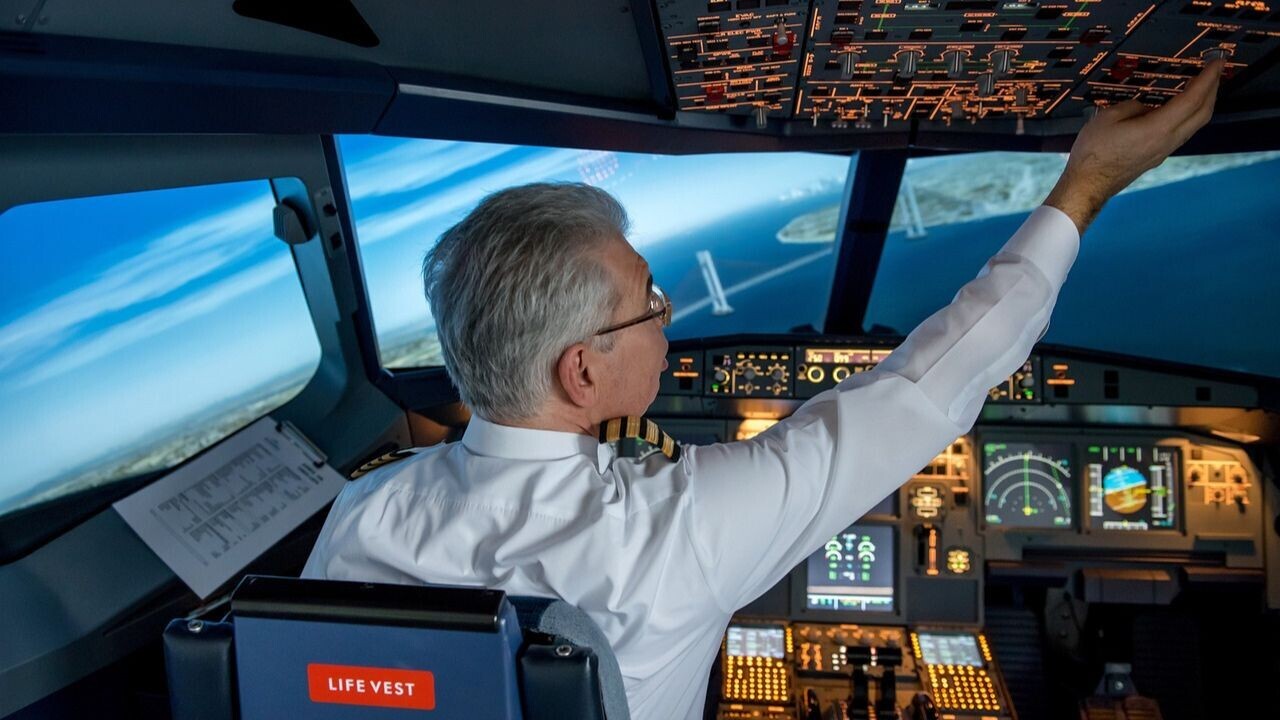
A push for single-pilot planes is a “dangerous gamble,” a leading aviation union has warned.
The European Cockpit Association (ECA) sounded the alarm over plans to automate commercial flights.
Aircraft makers want software to support a new single-pilot model. Known as extended minimum crew operations (eMCO), the concept removes one pilot from the flight deck during an aircraft’s cruise phase.
Automation tech would take over their supporting role. The second pilot can then rest while their colleague stays at the controls.
The EU Aviation Safety Agency (EASA) is now evaluating the proposals. If the regulator approves eMCO, commercial planes could no longer require two people at the controls.
Airbus enthusiastically backs the move. According to the French aviation giant, the changes could reduce crew fatigue and increase efficiencies. By transitioning towards one-pilot cockpits, they could also cut staff costs.
The move has also been pitched as a step towards fully-autonomous planes.
Pilots have slammed the plan. The ECA describes it as a “profit-driven scheme” with a “significant safety risk.”
Captain Otjan de Bruijn, the union’s president, said this is the first time EASA has started a regulatory process without intending to solve a safety problem.
“The safety of every airline flight starts with two well-trained, well-rested, professional pilots at the controls,” de Bruijn told TNW. “Removing one pilot with the current technological level is a very dangerous gamble with safety.”
That technological level is his paramount concern.
Automating pilots
Airbus and fellow French firm Dassault are spearheading the single-pilot push.
Neither business has confirmed the automation they will use. But Airbus has at least offered a glimpse into the strategy.
The company is developing eMCO for the A350 airliner. No other plane is suitable for this “evolution,” according to Airbus.

The automation features could derive from existing software.
One tool pitched as a starting point is Auto Emergency Descent (AED). Flight crew can activate AED when cabin pressure drops below a set limit or a pilot loses consciousness. The system will then commence an emergency descent.
By monitoring the pilot with a camera, the tool could automatically engage when problems arise.
Several other systems are also being tested. One of them can automatically shut down an engine when there’s a fire. Another involves speech-to-text communication with air traffic control.
Airbus has pledged to prove these tools improve safety before rolling them out. But that has not allayed the concerns of pilots.
The call for caution
The ECA says regulators are rushing to introduce the tech by 2027. De Bruijn wants them to slow down.
To illustrate the risks, he points to Boeing’s beleaguered 737 MAX. The plane was grounded in 2019 after two fatal crashes. Faulty software was blamed for both disasters.
The airliner has since returned to service, but further incidents have followed. In January, a Boeing 737 MAX 9 lost a section of fuselage mid-flight. Pilots were forced to make an emergency landing.
The string of controversies has spooked passengers. Even formerBoeing managers have refused to fly on a 737 MAX.
Single-pilot planes also provoke anxiety.
A whopping 89% of Australians would feel less safe boarding a flight with one pilot at the controls, according to a 2023 survey. Some 83% of respondents said they would be more hesitant to book a ticket.
Yet automation isn’t entirely opposed. A poll taken last year found that 60% of French citizens believe the current systems provide planes with an essential safety layer.
De Bruijn can also appreciate automation — but not if it prioritises profit over people.
“There needs to be very clear and transparent proof that new technology really improves flight safety,” he said. “We don’t want to be the testbed.”
Get the TNW newsletter
Get the most important tech news in your inbox each week.





